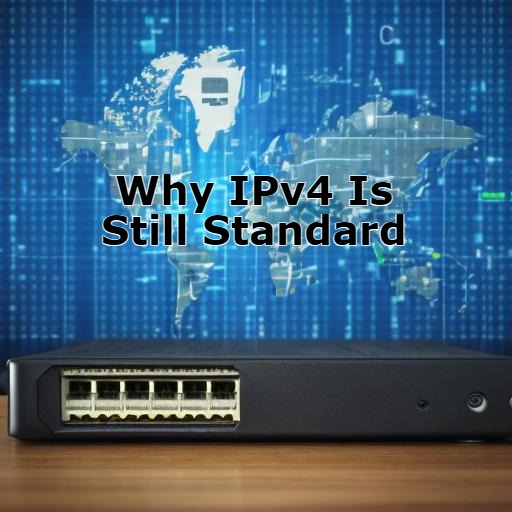The Internet Protocol version 4 (IPv4) is a fundamental technology that has underpinned the internet’s growth and development. Despite the emergence and advancements of IPv6, IPv4 remains widely adopted, presenting a complex landscape in the world of networking. This article examines the reasons behind IPv4’s continued prevalence, exploring its historical significance and the challenges associated with its coexistence with IPv6.
IPv4’s Ubiquitous Presence: A Historical Perspective
IPv4 was introduced in 1983 and has been the dominant IP version for decades. Its widespread adoption can be attributed to several factors. Firstly, it was the first widely implemented IP protocol, establishing a foundation for internet connectivity. Secondly, its simple 32-bit address format facilitated easy implementation and adoption. Additionally, the early development of key internet services and applications, such as email and the web, occurred primarily on IPv4 networks.
Over time, IPv4 became deeply ingrained in the internet’s infrastructure. Numerous devices, networks, and applications rely on IPv4 for communication and functionality. This extensive deployment has created a significant installed base, making a swift transition to IPv6 challenging.
IPv4’s Endurance: Practical Considerations and Challenges
IPv4’s continued usage can also be explained by practical considerations. Many organizations and individuals have invested heavily in IPv4-based infrastructure and applications. Migrating to IPv6 requires significant time, resources, and expertise, which can be a barrier for some. Furthermore, the transition to IPv6 introduces potential compatibility issues with legacy systems and applications that may not support the newer protocol.
Moreover, the proliferation of mobile devices and the Internet of Things (IoT) has increased the demand for IP addresses. While IPv6 offers a vast address space, the transition to IPv6 is not always straightforward in these contexts. Many IoT devices are designed with limited resources and may not be able to support IPv6.
===
IPv4’s ubiquity is a testament to its historical significance and the challenges associated with transitioning to IPv6. Despite advancements in technology and the benefits offered by IPv6, IPv4 continues to play a crucial role in today’s internet landscape. The coexistence of IPv4 and IPv6 presents a complex situation, requiring careful planning and coordination to ensure a seamless transition to a future-proof internet.

